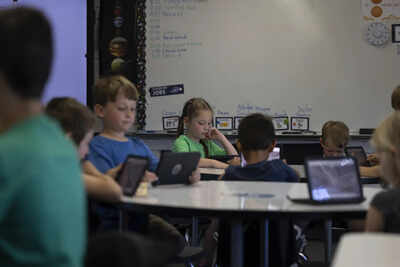ARTICLE AD BOX

When the Harvard Graduate School of Education (HGSE) launched its States Leading States (SLS) initiative earlier this year, its goal was not to dictate policy but to measure what works, and why.
Last month, the programme announced its first cohort of nine partner states: Alabama, Colorado, Delaware, Illinois, Indiana, Ohio, Rhode Island, Tennessee, and Texas.The initiative, led by the Centre for Education Policy Research (CEPR) at HGSE, will collaborate with local governments to assess a spectrum of education policies — from literacy programmes in Colorado to summer reading and mathematics camps in Alabama. The idea is to establish a consistent, evidence-based understanding of which state-level policies genuinely improve student learning outcomes, The Harvard Crimson reports.Scott E. Sargrad, senior director of the initiative, told The Crimson that the project aims to strengthen both state leadership and collective learning. “What we are hoping to do with this project is support state leadership, but also support learning about what’s actually working with state policy,” he said.
From research to reform
The programme’s first report is expected this spring and will share early findings across its participating states. In Illinois, for instance, education officials are keen to understand whether restricting student mobile phone use can enhance classroom focus and academic performance. Illinois State Superintendent of Education Anthony “Tony” V. Sanders told The Crimson that the partnership offers “a powerful forum to exchange ideas, strengthen data use, and support continuous school improvement.”
The Illinois case illustrates the SLS model: identifying local challenges, collecting comparative data, and developing metrics to measure success. For Sanders, that means quantifying the impact of cell phone bans on student engagement, a question that resonates with school systems nationwide.
A long time in the making
Although formally launched in January, the idea for the SLS programme dates back nearly two decades. CEPR faculty director Professor Thomas J. Kane recalled that in 2005, Joel I. Klein, then Chancellor of the New York City Department of Education, had approached Harvard researchers to evaluate elements of the city’s schooling system. The request, Kane told The Crimson, revealed a broader capacity gap. “Because he was saying he didn’t have the internal capacity to do this kind of work, we just thought, ‘Well gosh, if Joel Klein, the chancellor of the largest school district in the country, doesn’t have the capacity to do this, then nobody does,’” he said.That observation eventually led CEPR to raise funds for a sustained, data-focused collaboration among US states. The SLS initiative will run for four years. It will also draw on a network of more than 700 trained data analysts from Harvard’s Strategic Data Project — a CEPR effort that, since 2008, has focused on embedding data science in education policy.
A bipartisan approach to learning
Kane emphasised that SLS was deliberately structured as a bipartisan programme.
Its first cohort includes both conservative and liberal states — a design choice meant to prioritise areas where agreement is still possible. “Our plan is to stay away from culture war issues,” he explained, focusing instead on reducing absenteeism and improving student achievement.That approach feels particularly urgent at a time when US academic performance has been declining for over a decade. Kane said the programme hopes to offer practical, evidence-backed answers to reverse the trend. “We’re really focused on trying to provide some answers on that in the next year,” he told The Crimson.For Harvard, the initiative represents more than a new research collaboration, it signals an effort to rebuild trust in education policymaking through data, not debate. The results, expected in the coming months, may help state leaders navigate one of the most enduring questions in American education: how to make policy that truly works in schools.

 1 day ago
5
1 day ago
5









 English (US) ·
English (US) ·